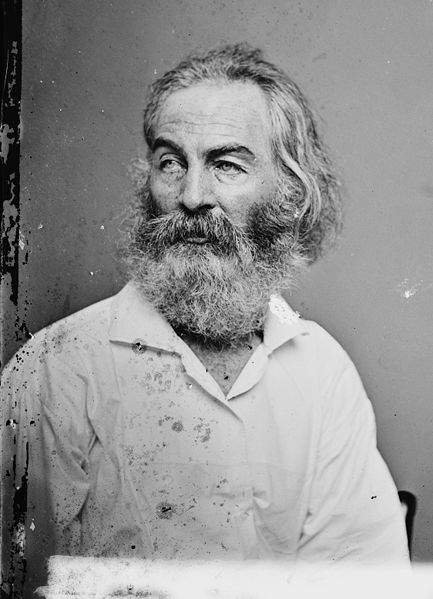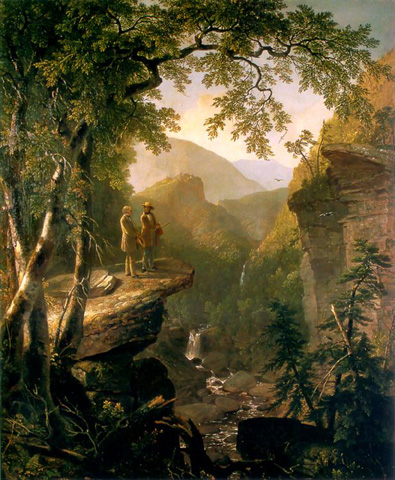By thinking outside of the modern mindset and promoting a poetic approach to human progress, I believe we can begin to heal the divisions that afflict our society while simultaneously provide an oppor-tunity for the local arts. In Plato's Republic, Socrates cites an ancient argument, or difference, between poetry and philosophy (i.e., mythos and logos) that I submit continues to this day. By weighing in on this “ancient argument” toward a resolution, we can help to induce bottom up, culturally transformative change at a time when top down incremental change is failing the address the many challenges that confront our society.
While the modern era has exalted education, science and reason, the approach through logos, the term myth has become generally synonymous as something that's dismissively untrue. A more accurate and working definition can be as follows: the stories a society tells about itself. The term narrative seems to be currently en vogue and is similarly used to describe how an individual or group sees itself in rela-tion to the rest of the world body. Furthermore, the modern mindset often fails to differentiate between religion, an institution, and the mythos.
This is not to suggest that we should abandon education, science or reason, only to recognize their limitations. As activists, speaking truth to power is important, that is, as best we understand that truth to be given our limited vision. But we should recognize that the truth doesn't necessarily lend itself to inspiration; conversely, it can lend itself to its opposite effect, that of demoralization. Consequently, people become susceptible to latching on to a narrative that enables one to disengage from the truth in order to sustain a level of validity and inspiration to their lives.
More than art, poetry can be about the truth. By drawing on the mythos and framing it poetically yet truthfully and interjecting the arts, we can tell the human story, in its diversity of forms, to induce the human spirit. In essence, by telling the human story, from beginning to its projected end, you enable the individual to awaken to the truth of his or her role in its outcome by providing a new means to dis-cover or affirm validation for one's life. Furthermore, it can cast roles, making it difficult to disengage from.
If you promote a collective vision, rooted in truth and integrity, people will eventually adjust their lives because inherently they will desire their lives to be part of the solution rather than the problem. But the key words here are eventually and inherently. There are legitimate obstacles: it must be the truth, as best we understand the truth to be; it must be capable of capturing the collective imagination; it must sustain a level of inspiration. Granted, my limited credibility here is the first obstacle. But I see no impasse.
As developments in neuroscience have demonstrated that the capacity to reason is inseparable from emotion, as a society, it occurs to me, we've yet to fully come to terms with that truth. By promoting the human spirit, one also promotes greater integrity of reason. To my view, it's not by accident that great strides in both philosophy and poetry occurred simultaneously in that special time and place known as the Golden Age of Greece.
Societies throughout human history have turned to the spiritual gifts of their poets to revitalize the moral culture. To meet the challenges before own democratic society, it increasingly appears that we must also look to our poets. Walt Whitman tried a poetic approach at another time of division in our country, in the prelude to the civil war. But Whitman, while revolutionizing the art form, ran into the limitations of poetry as art. Yet by expanding his approach to encompass all of the arts, including poetry as art, with a particular emphasis on the communal, participatory arts, a new poetic approach can be initiated. At present, I'm calling this project The Perfect Wave Project.
To summarize, we should explore a more vital use of the arts to address what may be a burgeoning spi-ritual crisis, which I define, simply, as follows: the inability to overcome entrenched, narrow interests that threaten the integrity of the greater collective. Put another way, we should enlist the arts as part of a broader spiritual movement. Self-interest in human nature is a force to be reckoned with; who among us has not strived to attain a certain degree of wealth and power, or wealth and status? But it's no match for the human longing that our lives be imbued with meaning beyond our individual selves. Moving in this direction I believe we may find our salvation.
Wednesday, January 19, 2011
Monday, January 17, 2011
Honoring Martin Luther King, Jr. and relation to the Project
"The trailblazers in human, academic, scientific, and religious freedom have always been nonconformists. In any cause that concerns the progress of mankind, put your faith in the nonconformist." -- Martin Luther King, Jr.
Here on MLK day, it's worth revisiting how the project relates to the man. Foremost, perhaps, it promotes a nonconformist, poetic approach to human progress. While that fact may contribute nothing to ensure its ultimate success, it at least pays homage to the pioneer spirit. But the name of the project, "The Promised Land" was also influenced by Martin Luther King, Jr. According to Dictionary of Cultural Literacy, the term is defined as follows:
"Like anybody, I would like to live a long life. Longevity has its place. But I'm not concerned about that now. I just want to do God's will. And He's allowed me to go up to the mountain. And I've looked over. And I've seen the Promised Land. I may not get there with you. But I want you to know tonight, that we, as a people will get to the Promised Land. And I'm happy, tonight. I'm not worried about anything. I'm not fearing any man. Mine eyes have seen the glory of the coming of the Lord."
Here on MLK day, it's worth revisiting how the project relates to the man. Foremost, perhaps, it promotes a nonconformist, poetic approach to human progress. While that fact may contribute nothing to ensure its ultimate success, it at least pays homage to the pioneer spirit. But the name of the project, "The Promised Land" was also influenced by Martin Luther King, Jr. According to Dictionary of Cultural Literacy, the term is defined as follows:
Promised Land: The land that God promised he would give to the descendants of Abraham and Isaac and Jacob; the "land flowing with milk and honey"; the ..land.. of ..Canaan.., or ....Palestine..... The Israelites did not take it over until after the Exodus, when they conquered the people already living there.As the term symbolizes a shared vision, Martin Luther King, Jr. makes reference to it in his last public address. The following excerpt, as it came on the eve of his assassination, never fails to help restore my faith, if not in the project's success, at least in the spirit behind it:
By extension, an idyllic place or state of being that a person hopes to reach, especially one that cannot be reached except by patience and determination, is called a "Promised Land." (my bold to emphasize how it relates to our purposes)
"Like anybody, I would like to live a long life. Longevity has its place. But I'm not concerned about that now. I just want to do God's will. And He's allowed me to go up to the mountain. And I've looked over. And I've seen the Promised Land. I may not get there with you. But I want you to know tonight, that we, as a people will get to the Promised Land. And I'm happy, tonight. I'm not worried about anything. I'm not fearing any man. Mine eyes have seen the glory of the coming of the Lord."
Saturday, January 8, 2011
New York Times Editorial Link / The Relevance of the Promised Land Project
Here's a link to a New York Times column by David Brooks that addresses a recently published book of philosophy. The Promised Land Project addresses many of these same issues but from the side of poetry.
Of particular note is the described collective dynamic called "whooshing up" (leave it to the philosophers to come up with that word) which I would describe as collective spirit. There is no mention of the human spirit, the poet's realm, which in my view reflects the divine law to love others as yourself, the ultimate "whooshing up" that can enable human salvation and world peace.
In this ancient argument between poetry and philosophy (i.e., mythos and logos), cited by Socrates in Plato's Republic, here's an opportunity for poetry to weigh in towards its resolution. Drawing on the mythos, I entitled this project "The Promised Land" to symbolize a collective vision, and to honor what may have been the country's last true prophet, Martin Luther King, Jr.
Moving into the New Year, I expect to be promoting "The Perfect Wave Project" to emphasize the regional arts with the suggestion that it may represent the wave of the future.
Of particular note is the described collective dynamic called "whooshing up" (leave it to the philosophers to come up with that word) which I would describe as collective spirit. There is no mention of the human spirit, the poet's realm, which in my view reflects the divine law to love others as yourself, the ultimate "whooshing up" that can enable human salvation and world peace.
In this ancient argument between poetry and philosophy (i.e., mythos and logos), cited by Socrates in Plato's Republic, here's an opportunity for poetry to weigh in towards its resolution. Drawing on the mythos, I entitled this project "The Promised Land" to symbolize a collective vision, and to honor what may have been the country's last true prophet, Martin Luther King, Jr.
Moving into the New Year, I expect to be promoting "The Perfect Wave Project" to emphasize the regional arts with the suggestion that it may represent the wave of the future.
Subscribe to:
Posts (Atom)













